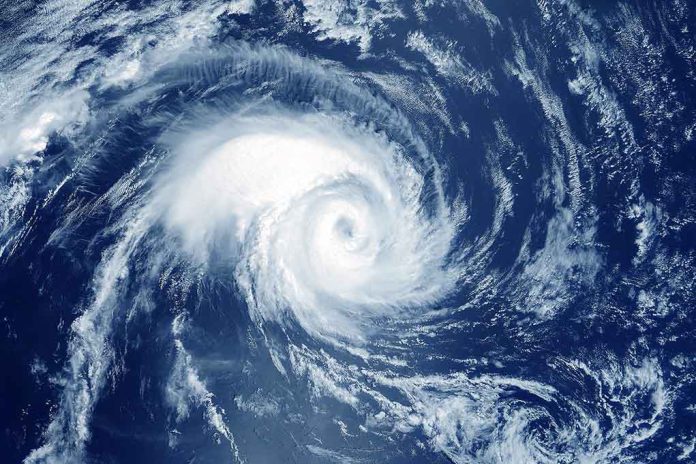
Two Russian oil tankers sink in the Black Sea, leaving one dead and an environmental disaster in their wake.
At a Glance
- Russian oil tankers Volgoneft-212 and Volgoneft-239 sank in the Black Sea during a severe storm
- At least one crew member confirmed dead, with others rescued and hospitalized
- Significant oil spill reported, raising environmental concerns
- Russian authorities launch criminal investigation into possible safety violations
- Putin orders working group to manage rescue efforts and mitigate environmental impact
Disaster Strikes in the Black Sea
A maritime catastrophe unfolded in the Black Sea as two Russian oil tankers, Volgoneft-212 and Volgoneft-239, succumbed to treacherous weather conditions. The incident occurred in the strategically important Kerch Strait, a key route for Russian grain and oil exports. The Volgoneft-212, built in 1969, split in half and sank, while the Volgoneft-239, constructed in 1973, was left severely damaged and adrift.
The tragedy has claimed at least one life, with 13 sailors evacuated from the Volgoneft-212. Both vessels had a combined crew of 29 and were capable of carrying approximately 4,200 tonnes of oil products each. The sinking has resulted in a significant oil spill, prompting immediate environmental concerns and a large-scale response from Russian authorities.
Greenpeace environmentalists are sounding the alarm: the accident involving Russian tankers in the Black Sea could lead to one of the largest man-made disasters.
Each of the sunken Russian tankers may have been carrying up to 5,000 tons of oil products.
«A spill of this volume… pic.twitter.com/nPDOG1ITTt
— NEXTA (@nexta_tv) December 15, 2024
Response and Rescue Efforts
In response to the crisis, Russian President Vladimir Putin has ordered the formation of a working group to oversee rescue operations and minimize the environmental impact. Over 50 personnel, along with helicopters and tugboats, have been deployed to the disaster site. The Russian emergency services are working tirelessly to manage the situation and provide assistance to the affected crew members.
The severity of the situation is underscored by the fact that 11 of the rescued sailors required hospitalization, with two reported to be in serious condition. Environmental specialists are on-site to assess the extent of the damage caused by the oil spill, which could have far-reaching consequences for the Black Sea’s delicate ecosystem.
Investigation and Potential Consequences
As the immediate crisis response continues, Russian authorities have launched two criminal investigations into possible safety violations that may have contributed to the disaster. The age of the vessels – over 50 years old – raises questions about the maintenance and safety protocols in place for such aging tankers operating in challenging maritime conditions.
The sinking of these tankers not only represents a significant loss of life and property but also poses a serious threat to the marine environment of the Black Sea. The long-term effects of this oil spill on local wildlife and coastal communities remain to be seen, but immediate action is crucial to mitigate the damage.
Sources:
Russian tanker splits in half and sinks during heavy storm as oil spills into the Black Sea
Oil spill near Black Sea after two Russian tankers seriously damaged in storm
Two Russian oil tankers wrecked in Black Sea













